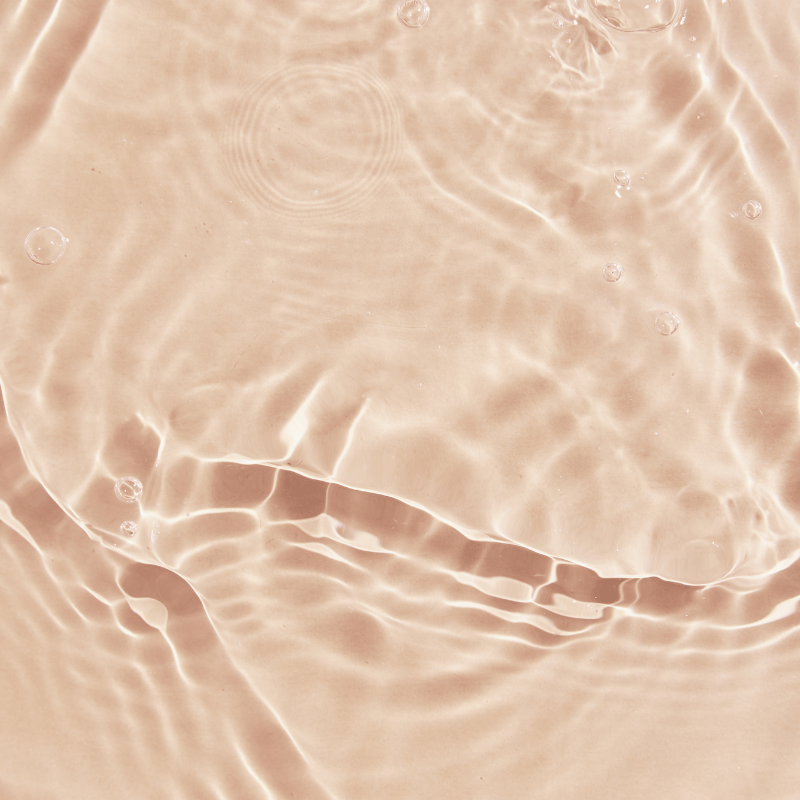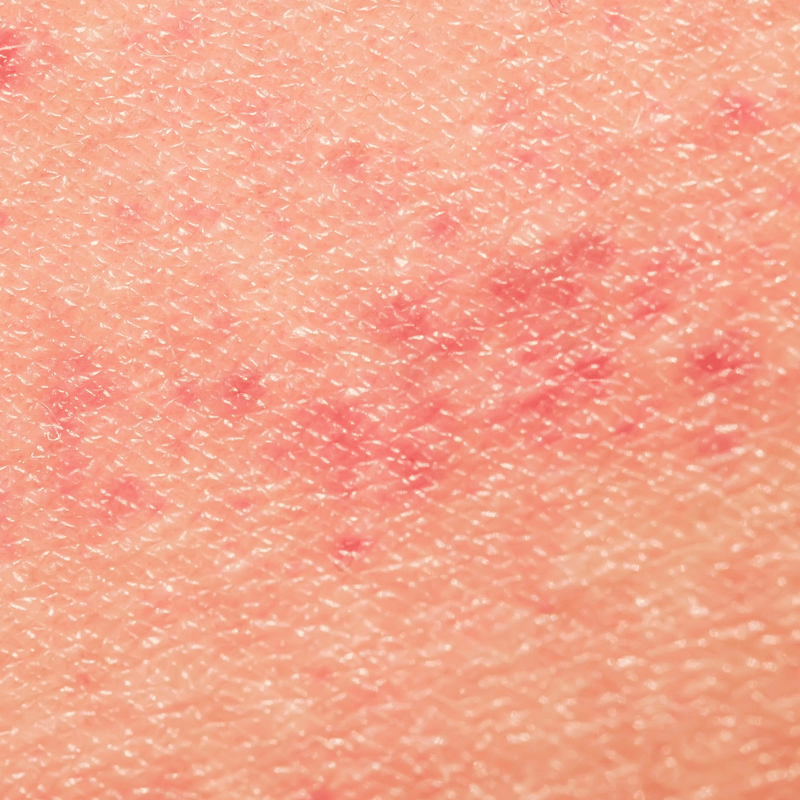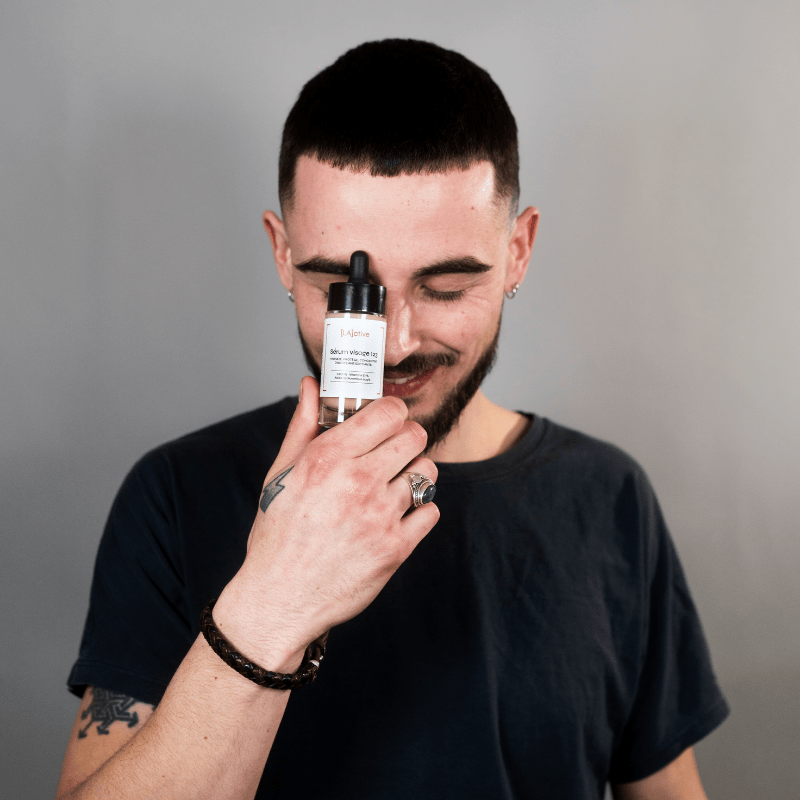Vitamin E : an antioxidant treasure for radiant skin
What is vitamin E ?
Vitamin E is a group of powerful compounds called tocopherols and tocotrienols, naturally present in plants. In cosmetics, vitamin E (in the form of tocopherol) is a star ingredient for its protective and repairing effects. It acts like an antioxidant shield, protecting the skin from external aggression and the signs of premature ageing.
A little history ...
Discovered in 1922 by two American researchers, Herbert Evans and Katherine Bishop, vitamin E was first identified for its reproductive benefits in rats. In the 1940s, scientists began to explore its potential for human health, and its effectiveness as an antioxidant was soon recognised. Since then, it has made its mark in the world of skincare for its protective and regenerative effects.
Where can it be found ?
Vitamin E is found naturally in a variety of foods, making it an accessible nutrient to support your health and that of your skin. Among the best food sources are vegetable oils such as wheat germ, sunflower and olive oil. Fruit and vegetables such as avocados, spinach and kiwi fruit are also rich in vitamin E. Nuts, particularly almonds and hazelnuts, as well as sunflower seeds, are excellent options for incorporating this vitamin into your diet. What's more, although less concentrated, vitamin E is also found in certain animal products such as eggs and dairy products. By including these foods in your daily diet, you can easily benefit from vitamin E's antioxidant and moisturising properties, contributing to healthy, radiant skin.
Properties of vitamin E in cosmetics
Discover the main properties of vitamin E for the skin below. Antioxidant, moisturising and repairing, vitamin E protects the skin, reinforces its natural barrier and helps cell regeneration for soft, radiant skin.
Antioxidant
Vitamin E is a powerful antioxidant that protects the skin from the harmful effects of free radicals, unstable molecules produced by external factors such as pollution, UV rays and oxidative stress. Naturally present in the skin, vitamin E acts by neutralising these free radicals, helping to prevent premature ageing of the skin, including wrinkles and brown spots. Its antioxidant action is exerted mainly via tocopherol, one of its most bioactive forms and commonly used in cosmetics. According to scientific studies, vitamin E is particularly effective when applied directly to the skin, where it strengthens the cutaneous barrier and improves resilience in the face of environmental aggression. In addition, research shows that it can act synergistically with other antioxidants, such as vitamin C, mutually reinforcing their effects for even more effective protection against cellular damage. Thanks to its antioxidant action, vitamin E plays an essential role in preserving the skin's elasticity and radiance, while supporting the skin's natural regeneration process.

Moisturising
Vitamin E is renowned for its remarkable moisturising properties, making it an essential ingredient in skin care. As an emollient, it helps maintain hydration by reinforcing the skin's lipid barrier, limiting transepidermal water loss and preserving skin elasticity. Scientific studies indicate that vitamin E can improve skin hydration levels by promoting water retention and preventing dryness. By creating a protective layer on the skin, it also helps to soften and smooth skin texture, leaving it feeling comfortable and supple. What's more, vitamin E is often combined with other moisturising ingredients, such as hyaluronic acid, to optimise its effects and provide deep hydration. Thanks to its ability to moisturise and soothe, vitamin E is particularly beneficial for dry, sensitive or dehydrated skin, contributing to a radiant, healthy complexion.
Repairer
Vitamin E has reparative properties that play a crucial role in skin health. It promotes cell regeneration by stimulating the production of new skin cells, which is essential for wound healing and scar reduction. Studies have shown that topical application of vitamin E can accelerate the wound healing process, reduce inflammation and improve the appearance of scars. By protecting cell membranes from free radical damage, it also helps maintain skin integrity. In addition, vitamin E helps to reduce redness and irritation, making it particularly beneficial for sensitive or damaged skin. By incorporating vitamin E into skin care, we can promote faster healing and better scarring, for visibly healthier skin.

Calming
Vitamin E is widely recognised for its soothing properties, offering relief to irritated or sensitive skin. Thanks to its anti-inflammatory action, it helps to reduce redness and feelings of discomfort caused by various factors, such as environmental aggression, allergies or irritation from cosmetic products. Scientific research has shown that vitamin E can modulate the skin's inflammatory response by regulating the production of pro-inflammatory cytokines, helping to calm and soothe skin tissue. By nourishing and moisturising the skin, it also improves the skin barrier, making it less vulnerable to irritation. As a result, using vitamin E in skincare is particularly beneficial for people suffering from skin conditions such as eczema or dermatitis, offering lasting comfort and protection for a more balanced, healthy complexion.
Secondary properties of vitamin E in cosmetics
Improves skin texture
By moisturising and nourishing the skin, vitamin E helps to improve its texture and overall appearance. It helps smooth skin and reduce the appearance of fine lines and wrinkles.
Accelerates healing
By promoting cell regeneration and repair of damaged tissue, it can speed up the wound-healing process and reduce the appearance of scars.
Prevents skin damage
By protecting cell membranes from oxidation, vitamin E helps prevent skin damage and maintain skin integrity.
How is Vitamin E extracted and produced ?
The vitamin E used in cosmetics is mainly extracted from plant sources such as wheat germ oil, sunflower oil, soya oil or olive oil. To obtain a pure, high-quality extract, natural extraction techniques (cold pressing) or advanced purification processes are used to isolate the tocopherol. d-alpha-tocopherol (natural form) and dl-alpha-tocopherol (synthetic form) are the main forms used in cosmetics. At LActive, we favour natural forms derived from plant sources to offer you a pure vitamin E that's kind to your skin and the environment! 🤗

Vitamin E in LActive skincare products : a perfect alchemy
In our products, vitamin E is combined with other natural active ingredients to create skin care products that moisturise, protect and enhance your skin. It works in synergy with the other ingredients to boost the effectiveness of our all-in-one formulas, guaranteeing radiant, protected skin every day! 💫
Frequently asked questions about vitamin E
Is vitamin E suitable for all skin types?
Yes, vitamin E is well tolerated by most skin types, even the most sensitive. It is ideal for dry, mature and damaged skin. ☺️
How often should I use products containing vitamin E ?
Our skincare products are formulated to be used daily, morning and night, like a traditional skincare product, for long-lasting hydration and protection. 😉
TO SHINE IN SOCIETY WITH YOUR NEW ACQUAINTANCES 😉
Vitamin E like you've never seen it before !
🌿 Did you know ?
Vitamin E is liposoluble, which means that it dissolves in fat. This mechanism allows the skin to retain it for longer, guaranteeing long-lasting protection !
🧴 A natural stabiliser !
Vitamin E is often added to cosmetics not only for its benefits to the skin, but also to extend the shelf life of products by delaying oxidation.
🏆 A rare ingredient in the plant kingdom
Wheat germ and argan oil are among nature's most concentrated sources of vitamin E.
Discover vitamin E-enriched skincare
Ready to give your skin a dose of antioxidant protection and intense hydration ? Discover our vitamin E-enriched skin care products, designed to protect and beautify your skin day after day ! And discover a new way to look after your skin, naturally.


